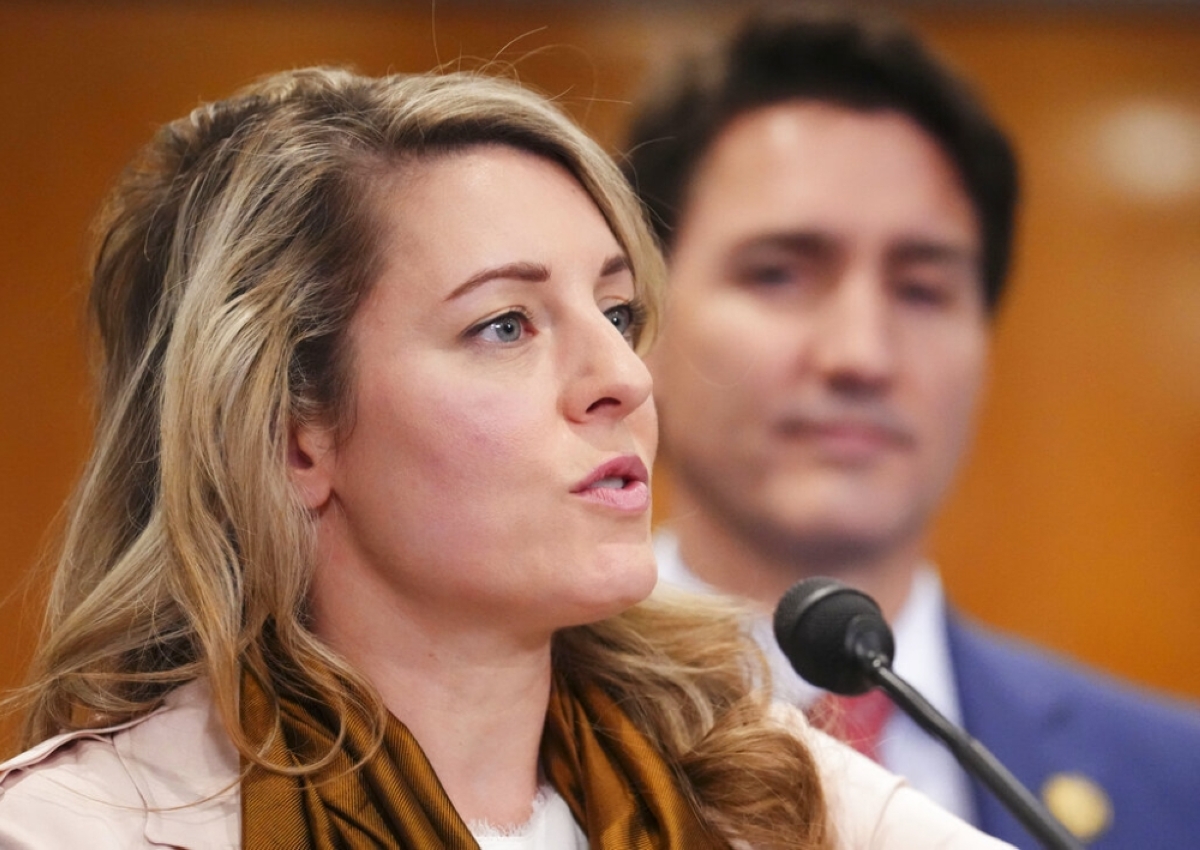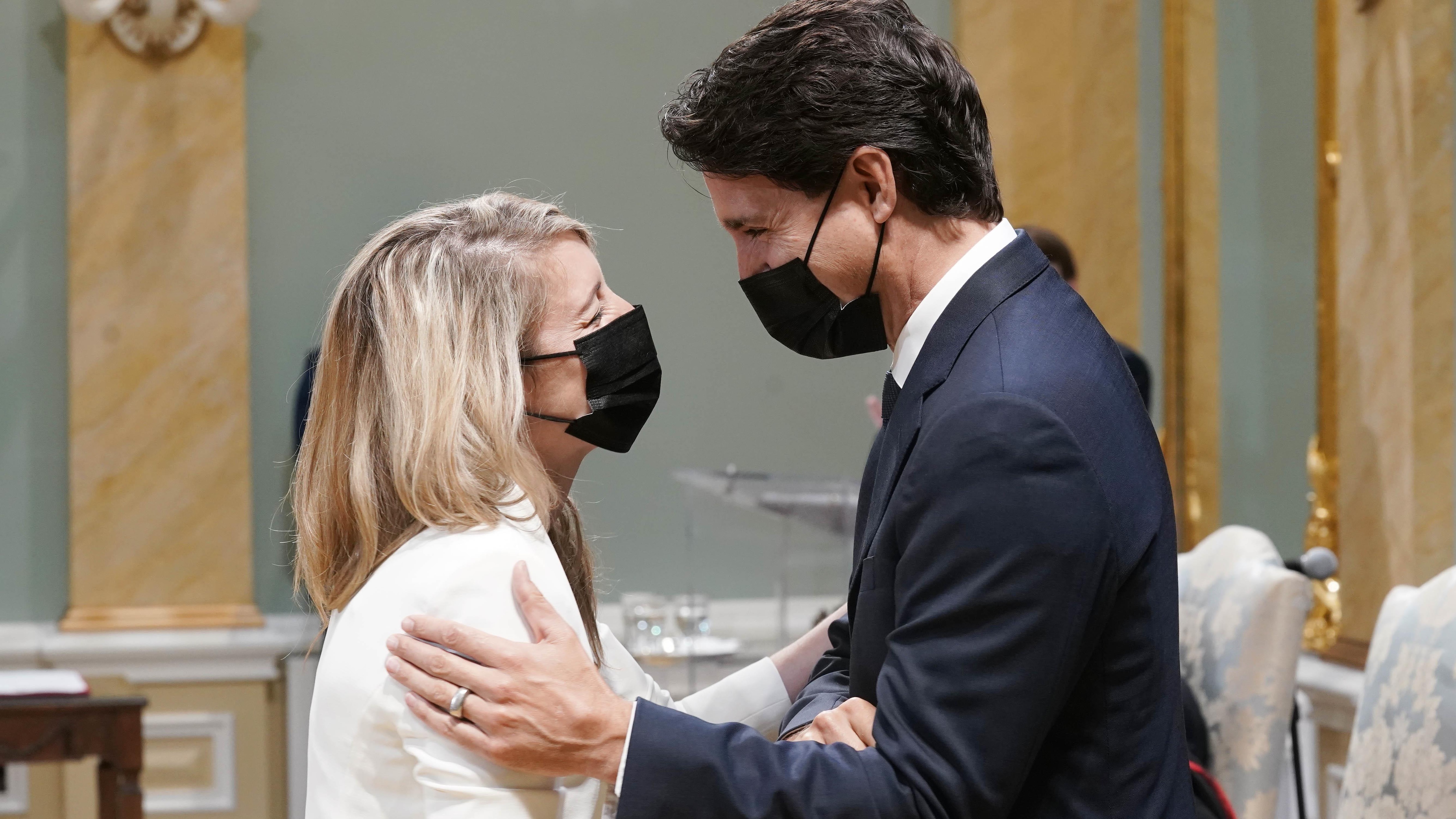Trudeau Joly Relationship: A Comprehensive Analysis
The relationship between Justin Trudeau and Maryam Monsef, often referred to as Trudeau Joly Relationship, has been a topic of public interest and media speculation. As prominent figures in Canadian politics, their interactions and dynamics have drawn significant attention. Understanding the nuances of their relationship provides insight into the workings of Canadian governance and leadership styles.
When examining the Trudeau Joly relationship, it is essential to consider the context of Canadian political culture. Both leaders bring unique perspectives and experiences to the table, shaping how they collaborate and engage with one another. This relationship is not just about personalities but also reflects broader political alliances and strategies.
This article will delve into the intricacies of the Trudeau Joly relationship, exploring its historical background, key moments, and implications for Canadian politics. By the end, you'll have a comprehensive understanding of how this relationship has evolved and its significance within the Canadian political landscape.
Read also:Top Anime Websites In Hindi Your Ultimate Guide To Streaming Anime With Subtitles
Table of Contents
- Introduction to Trudeau Joly Relationship
- Biography of Key Figures
- Historical Context of Their Relationship
- Key Moments in Trudeau Joly Relationship
- Political Dynamics and Strategies
- Public Perception and Media Coverage
- Impact on Canadian Politics
- Challenges in the Relationship
- Future Prospects and Predictions
- Conclusion and Call to Action
Introduction to Trudeau Joly Relationship
Understanding the Relationship
The Trudeau Joly relationship, despite being frequently discussed in media circles, requires a deeper understanding beyond surface-level observations. Both leaders represent distinct political ideologies and backgrounds, which influence their interactions. Justin Trudeau, as the Prime Minister of Canada, has a charismatic leadership style, while Maryam Monsef brings expertise in community engagement and grassroots politics.
Throughout their tenure, the Trudeau Joly relationship has been characterized by collaboration and occasional disagreements. These dynamics highlight the complexities of governing a diverse nation like Canada, where leaders must balance personal beliefs with national priorities.
Biography of Key Figures
Before diving into the specifics of their relationship, it is crucial to understand the backgrounds of both individuals.
Biographical Details of Justin Trudeau
Justin Trudeau, born on December 25, 1971, in Ottawa, Ontario, is the 23rd and current Prime Minister of Canada. He entered politics after a career in teaching and public speaking. Elected as the leader of the Liberal Party of Canada in 2013, Trudeau quickly became a prominent figure on the global stage.
Biographical Details of Maryam Monsef
Maryam Monsef, born on October 10, 1984, in Afghanistan, immigrated to Canada as a refugee in 1994. She became the youngest woman ever elected to the Canadian Parliament in 2015. Monsef has held various ministerial roles, including Minister of International Development and Minister of Women and Gender Equality.
| Name | Position | Birthdate | Place of Birth |
|---|---|---|---|
| Justin Trudeau | Prime Minister of Canada | December 25, 1971 | Ottawa, Ontario |
| Maryam Monsef | Minister of International Development | October 10, 1984 | Afghanistan |
Historical Context of Their Relationship
The historical context of the Trudeau Joly relationship is rooted in the 2015 Canadian federal election, where both leaders played pivotal roles. Trudeau's victory marked a new era for Canadian politics, and Monsef's appointment to key ministerial positions highlighted the diversity and inclusivity of the Liberal Party.
Read also:Sone248 The Rising Star In The World Of Entertainment
Over the years, their relationship has evolved through various political cycles, including electoral campaigns, policy implementations, and international engagements. This context shapes how they approach issues and interact with one another.
Key Moments in Trudeau Joly Relationship
Highlighting Significant Events
Several moments stand out in the Trudeau Joly relationship:
- 2015 Election Victory: Both leaders celebrated a historic win for the Liberal Party, setting the stage for their collaboration.
- Ministerial Appointments: Monsef's appointment to critical roles demonstrated Trudeau's trust in her capabilities.
- Policy Alignments: Their shared commitment to progressive policies, such as gender equality and climate action, strengthened their bond.
Political Dynamics and Strategies
Understanding the political dynamics between Trudeau and Monsef is essential to grasp their relationship fully. Both leaders employ distinct strategies in achieving their goals, often complementing one another's strengths.
Trudeau's focus on international diplomacy aligns well with Monsef's expertise in development and gender equality. This synergy allows them to tackle complex issues effectively, showcasing the benefits of collaborative leadership.
Public Perception and Media Coverage
Public perception of the Trudeau Joly relationship is shaped by media coverage and public discourse. While some view their collaboration as a model of effective governance, others criticize perceived discrepancies in their approaches.
Media outlets play a crucial role in shaping narratives, often highlighting both positive and negative aspects of their relationship. This dual perspective provides a balanced view of their interactions and contributions to Canadian politics.
Impact on Canadian Politics
The Trudeau Joly relationship has had a significant impact on Canadian politics, influencing policy decisions and governance strategies. Their collaboration has led to the implementation of progressive policies, fostering a more inclusive and equitable society.
Moreover, their relationship exemplifies the importance of diversity in leadership, inspiring future generations to pursue careers in politics and public service.
Challenges in the Relationship
Addressing Difficulties
No relationship is without challenges, and the Trudeau Joly relationship is no exception. Some of the challenges they face include:
- Differing Priorities: At times, their individual priorities may conflict, requiring negotiation and compromise.
- Public Scrutiny: As high-profile figures, they are subject to intense media scrutiny, which can strain their relationship.
- Political Pressures: The demands of governing a diverse nation can create tensions, necessitating strong communication and trust.
Future Prospects and Predictions
Looking ahead, the future prospects of the Trudeau Joly relationship remain promising. As Canada continues to navigate complex global challenges, their collaboration will be vital in shaping the nation's trajectory.
Predictions suggest that their relationship will evolve further, adapting to new circumstances and opportunities. Their commitment to progressive values and inclusive governance will likely remain a cornerstone of their partnership.
Conclusion and Call to Action
In conclusion, the Trudeau Joly relationship represents a dynamic and evolving partnership that has significantly impacted Canadian politics. By understanding its historical context, key moments, and challenges, we gain valuable insights into the workings of Canadian governance.
We invite you to share your thoughts and opinions in the comments section below. Engage with our content by exploring other articles on our site and spreading awareness about important political issues. Together, we can foster informed discussions and contribute to a more engaged citizenry.
Data and references for this article were sourced from reputable publications such as The Globe and Mail, CBC News, and Government of Canada reports, ensuring accuracy and reliability.

